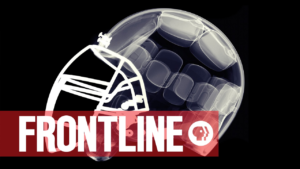As if the National Football League didn’t have enough on its plate with which to contend.
The NFL has just issued an edict ordering its players to stand for the national anthem when it’s played prior to football games.
There is another issue on the NFL’s plate. It’s called chronic traumatic encephalopathy, or CTE.
I got to write about it while working part time for Panhandle PBS. My task in those days was to write blogs pertaining to public service programming. “Frontline” did a landmark special on CTE in 2015 and I was privileged to offer some perspective on it.
Here is what I wrote in September 2015 for Panhandle PBS.
I mention this now because the NFL is back in the news. The topic this time — players who “take a knee” to protest police brutality against African-Americans — is unpleasant. It’s not nearly as grim and grievous as the “other big issue” that plagues the NFL to this day.
CTE is taking lives. The league is trying to do better at protecting these highly paid athletes/entertainers. It’s a full-time job for the NFL. I am wondering how in the world the league is going to focus on players who launch their protests by “taking a knee.”
